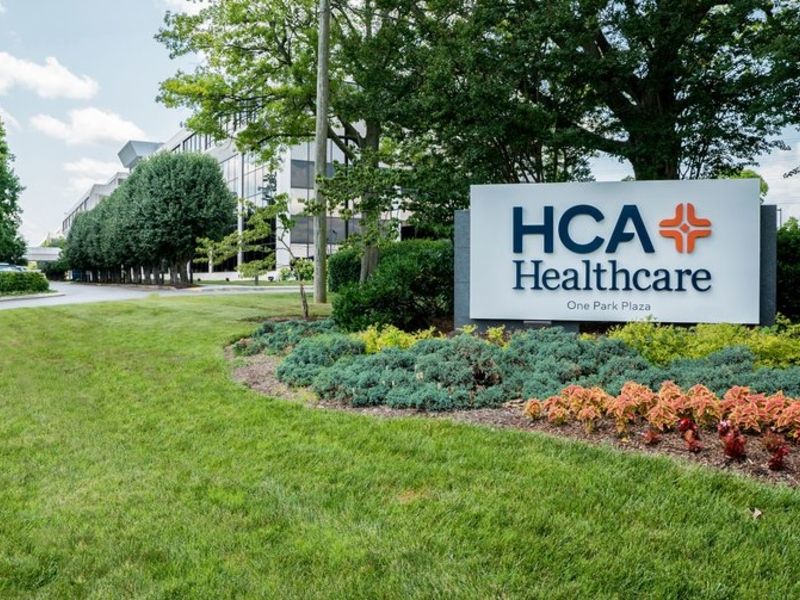
HCA Healthcare acquired Mission Health to secure monopoly market power and inflate prices, according to the plaintiffs behind a new lawsuit.
HCA allegedly used “all-or-nothing” negotiation tactics with insurers, leading to higher care prices and insurance premiums in lopsided acute-care markets in North Carolina’s Buncombe and Madison counties, according to a lawsuit filed in state court Tuesday. Mission Health used the same tactics prior to the acquisition, among other anticompetitive schemes, the North Carolina patients claim in their suit.
The plaintiffs seek class action status, damages and an injunction to prevent future anticompetitive activity.
“HCA’s behavior since taking over Mission, and Mission’s prior abuse of its monopoly power, exemplify why healthcare in the United States costs so much more than elsewhere,” the complaint reads, noting that the former Mission CEO Dr. Ron Paulus got paid $4 million during his last four months on the job alone.
HCA will respond through the legal system when the Nashville, Tennessee-based company is served with the lawsuit, the health system said in a statement.
“We are committed to caring for western North Carolina as demonstrated through more than $330 million in charity care and uninsured discounts we provided in 2020, expansion of hospital services including the opening of the North Tower, a new Pediatric ER, and securing land for a new 120-bed behavioral health hospital,” the company said.
.The for-profit hospital chain HCA acquired Mission Health, a former not-for-profit system based in Asheville, N.C., for $1.5 billion in 2019. The North Carolina Attorney General’s Office conditionally approved the deal with stipulations. Under those terms, HCA is required to maintain a similar set of services at the newly acquired hospitals for at least 10 years, build new facilities in the state including a behavioral health hospital and support Mission Health’s community service programs. Those safeguards are insufficient to protect patients, the plaintiffs contend.
Since the acquisition, dozens of patients complained about rising bills, diminished safety and quality, and inadequate staffing at Mission Health facilities.
HCA charges more than double the state average for a Cesarean section birth without complications due to its “unbridled monopoly power and its status as a ‘must have’ system in western North Carolina,” according to the lawsuit. HCA has at least a 74% market share in acute care services in seven North Carolina counties, the lawsuit states. As a result, individual insurance premiums are allegedly significantly higher in Mission’s service area than in surrounding counties, the plaintiffs say.
That price disparity can be traced to HCA and Mission Health’s alleged “all-or-nothing” contracts with insurers, according to the lawsuit. When Blue Cross and Blue Shield of North Carolina objected to Mission Health’s Asheville hospital proposing price hikes, HCA responded by excluding all Mission Health locations from the insurer’s provider network, according to the lawsuit. Two years later, HCA took a similar tack with Cigna, the suit says.
HCA and Mission Health, for instance, would only allow commercial health plan members to access inpatient care at Mission Hospital in Asheville if the insurers also agreed to cover higher-priced outpatient services at the facility, the plaintiffs allege.
Mission Hospital in Asheville charged commercial insurers an average of 372% above the Medicare price for inpatient and outpatient services and 393% more than Medicare for inpatient services alone, according to RAND Corp. data cited in the lawsuit. That compares to a 262% average charge above Medicare for all North Carolina hospitals.
Prices allegedly increased after the state-administered Certificate of Public Advantage expired in 2016.
The lawsuit resembles the Sutter Health case, in which the Sacramento, California-based health system agreed to pay $575 million to settle antitrust charges, said David Barclay, legal counsel for the American Economic Liberties Project, which isn’t directly affiliated with the HCA or Sutter Health lawsuits.
“Hospitals are powerful institutions in these communities. Everyone knows somebody who works for one of these massive hospital chains,” Barclay said. “All of them have been given a free pass to openly violate antitrust laws for some time. This case could light a fire for more antitrust enforcement.”
Source link : https://www.modernhealthcare.com/legal/hca-sought-monopoly-market-power-mission-health-deal-lawsuit-alleges











